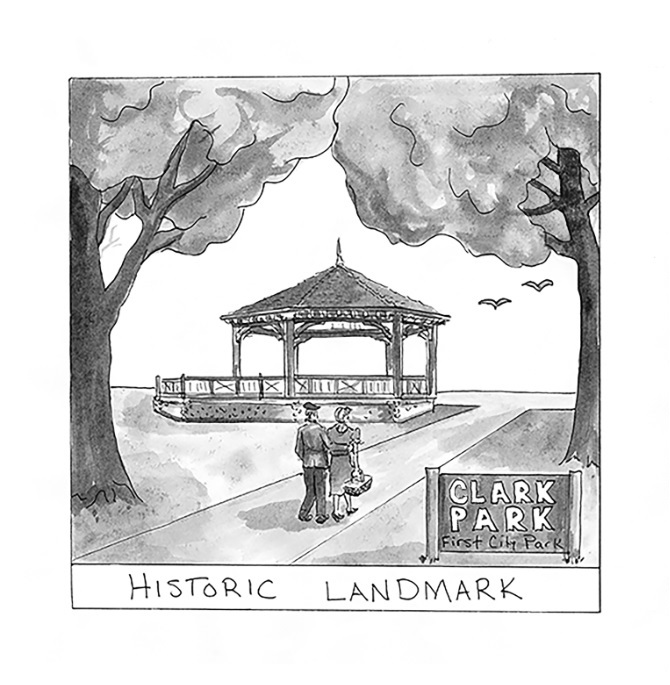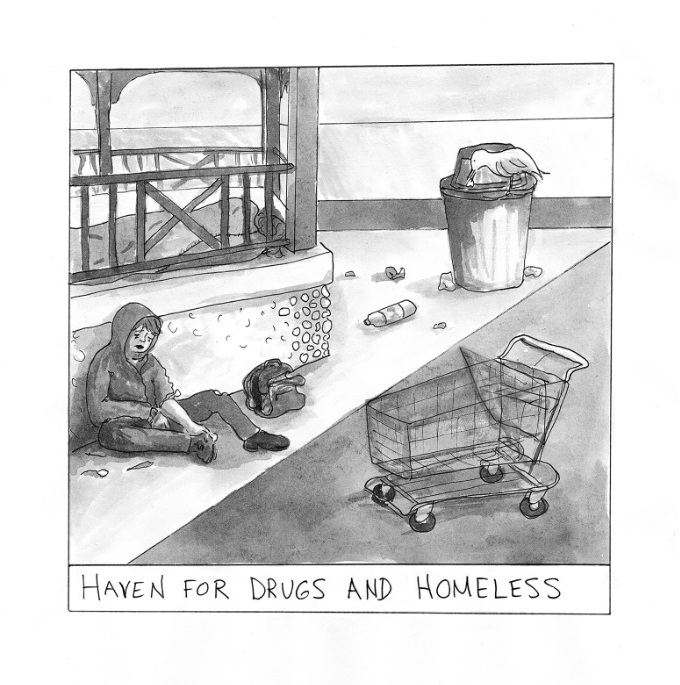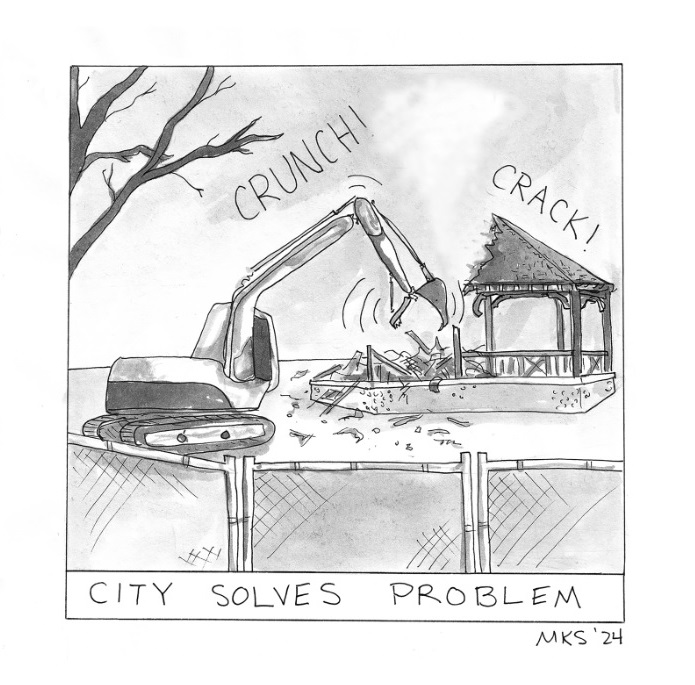by Mary Senter
Comic
Mary Senter, Razing History, 2024. Pen and ink, 14 x 5 inches
Artist’s Statement
Senryū is a form a Japanese poetry, similar to (or a subset of) haiku. While traditional haiku has a nature or seasonal theme, senryū tends to be about human foibles and is often sarcastic and darkly humorous.
I was just beginning to explore the medium of haiku comics when the mayor of my hometown announced that a more-than-100-year-old bandstand would be torn down to make way for a new dog park. The main reason for razing the historic landmark in the city’s first park was to deter the crime, drug activity, and loitering of homeless folks that have plagued the park since the heroin epidemic began.
The combination of senryū and comics allows the viewer to experience past, present, and future in a whimsical but serious way that will hopefully influence them to join in the fight to save the structure.
I love the brevity of haiku comics, and the idea that an entire story can be told in seventeen syllables and three panels.
Mary Senter is a multidisciplinary artist who creates in a cabin in the woods on the shores of Puget Sound. Her stories, essays, photos, and illustrations can be found in North American Review, Miracle Monocle, Lumina, Drunk Monkeys, Ponder Review, Cleaver, and elsewhere. She works in communications and design in the public sector and served as the graphic designer for Crab Creek Review. She’s the founder of Milltown Press and the editor of G.I. Days: An Anthology of Military Life. She loves real books, arts and culture, travel, sunshine, live music, dark beer, PNW history, and antique architecture. Visit her at www.marysenter.com.


